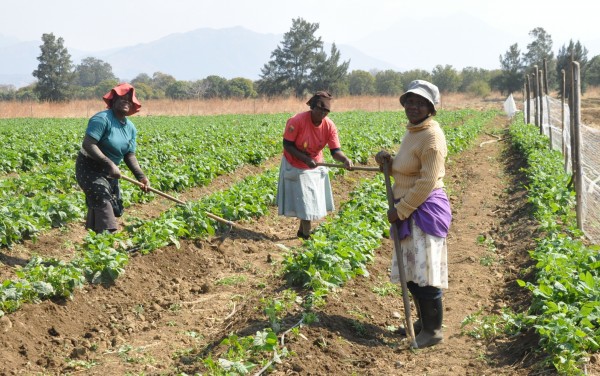One of the world’s richest men is betting that Africa will benefit from agricultural innovation enough to be food secure in the next 15 years.
That bet by Microsoft co-founder and philanthropist Bill Gates is part of his broader view that innovation will allow the lives of people in poor countries to improve faster in the next 15 years than at any other time in history, and to improve more than anyone else’s.
“The next 15 years will see major breakthroughs for most people in poor countries,” Gates says in his Annual Letter 2015. “They will be living longer and in better health. They will have unprecedented opportunities to get an education, eat nutritious food, and benefit from mobile banking. These breakthroughs will be driven by innovation in technology — ranging from new vaccines and hardier crops to much cheaper smartphones and tablets — and by innovations that help deliver those things to more people.”
It’s a view Gates expounded on in January in Davos, Switzerland, at the World Economic Forum’s 2015 meeting.
It’s good to promote agricultural innovation in Africa. No one does so more forcefully and more clinically than Calestous Juma, professor of the Practice of International Development, director of the Science, Technology, and Globalization Project at Harvard University, and director of the Agricultural Innovation in Africa Project funded by the Bill and Melinda Gates Foundation.
Agriculture is central to African economies. At a time when climate change is threatening Africa’s water supply, more than 30 percent of the continent’s GDP comes from rain-fed agriculture, which supports 70 percent of the population, Juma writes in his 2011 treatise, The New Harvest, Agricultural Innovation in Africa (Oxford University Press).
And, with local farmers not getting nearly as much yield as they could from the land, Africa each year buys some $50 billion worth of food produced by farmers outside the continent. American farmers get five times as much maize from their land as do African farmers. With innovation, the argument goes, African farmers can increase their yield by half in the next 15 years.
Innovation, therefore, is an imperative.
But innovation requires an infrastructure—an ecosystem—that has yet to be established in Africa, Juma argues. More than science and technology “suppliers,” it requires an enabling system where government, business, farmers, universities and research institutions join their individual strengths to focus on bringing new products, new processes and new organizations into economic use.
“The separation between government, industry, and academia stands out as one of the main sources of inertia and waste in Africa’s knowledge-based institutions. The challenge is not simply creating institutions,
Fostering a culture of innovation means addressing issues related to science, technology and innovation in an integrated way at the highest possible levels in government. It means routinely including systemic advice on science and innovation in policy making.
“In 2010, no African head of state or government had a chief economic adviser… No African leaders are supported by effective mechanisms that provide high-level science, technology, and Engineering advice,” Juma laments. “So far, most African countries have failed to develop national policies that demonstrate a sense of focus to help channel emerging technologies into solving developmental problems. They still rely on generic strategies dealing with ‘poverty alleviation’ without serious consideration of the sources of economic growth.”
Will Bill Gates win his Africa-will-be-food-secure-by-2030 bet? If African leaders are bold enough to commit to and follow through on the blueprint outlined by Professor Juma in The New Harvest, he will for sure.













